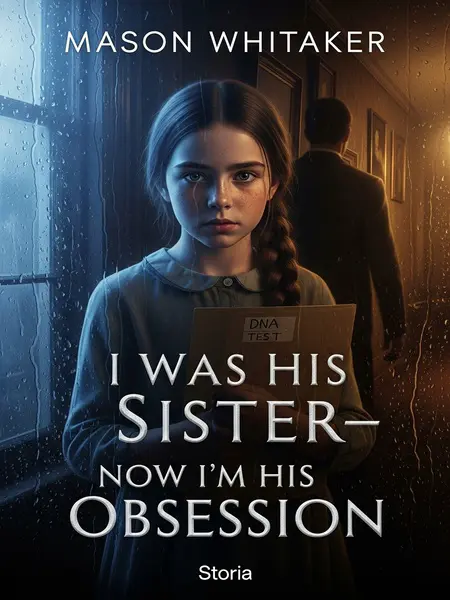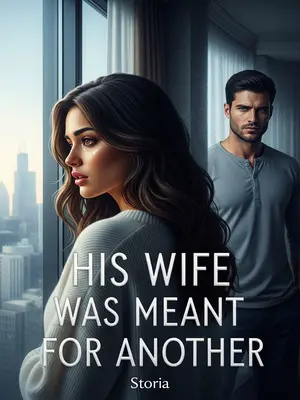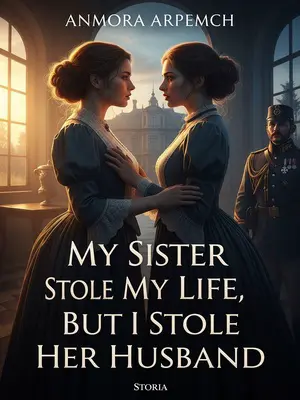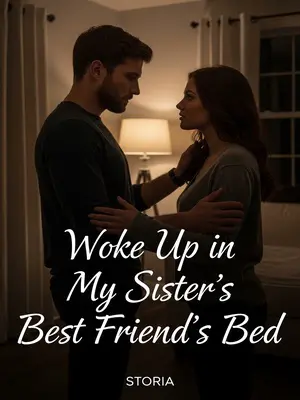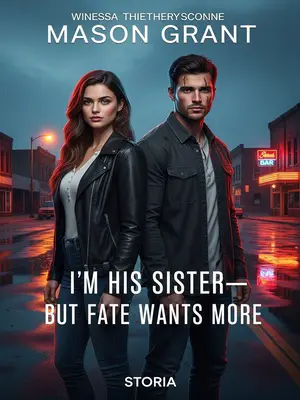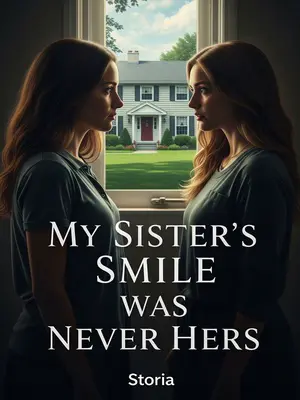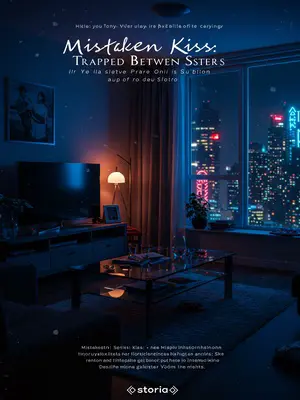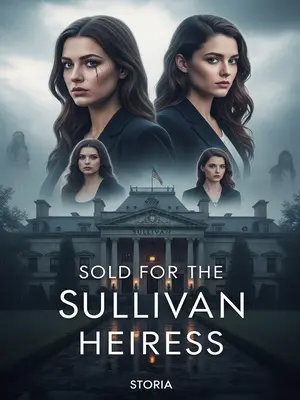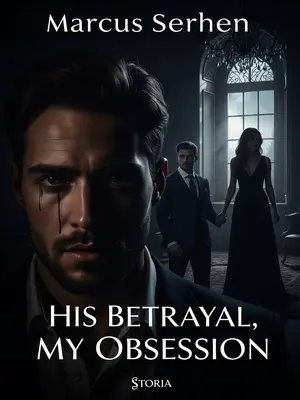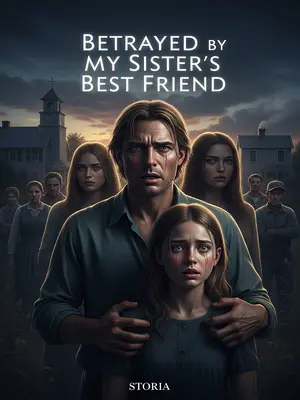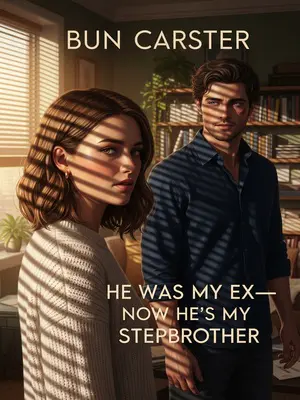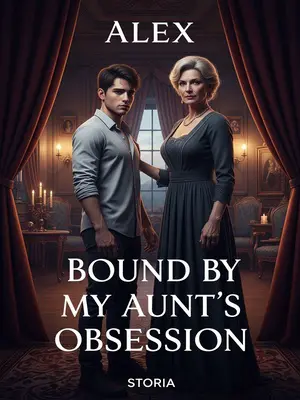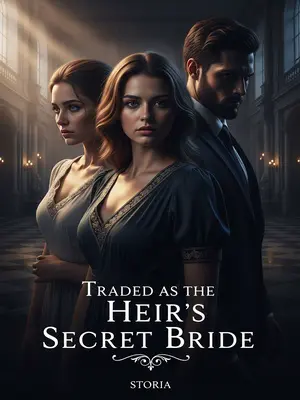Chapter 1: The Boy With My Name
“Emmy, up ahead is the children’s center your dad donated in your name. What do you think—want to go in and check it out?”
The SUV eased to a stop at the curb, late morning sunlight bouncing off the shiny new sign: Maple Heights Children’s Center. Mrs. Whitaker’s voice was gentle but had that hopeful edge, like she wanted me to say yes but didn’t want to push. The engine’s hum faded. For a second, I caught the scent of fresh-cut grass, the faint tang of new paint. My heart fluttered. That was Dad, always making sure every blade of grass was in place, every wall freshly painted for the ribbon-cuttings. The laughter of kids playing out front drifted in, making the moment feel even brighter.
“It’s okay if you’re not up for it, sweetie—no pressure. We can just go home and open your birthday presents if you want..."
She reached over, squeezing my hand. Her diamond bracelet caught a flash of sunlight, scattering little rainbows across the car’s interior. I could feel her trying to sound warm, but there was a tiny wobble in her voice—like she was worried I’d find the whole thing boring, or maybe that I wouldn’t get why it mattered. The Whitakers did birthdays big. Balloons. Triple-layer cakes. Piles of wrapped boxes. But this time, the way she let her words trail off made it clear: she was letting me decide for once, not just sticking to the usual birthday routine.
“Mom! I want to see it!”
I bounced in my seat, excitement bubbling up in a way I just couldn’t hide. My voice came out louder than I meant, but who cared? The idea of seeing something Dad made just for me—even if it was for kids I’d never met—felt special. Like I was finally part of something real, not just another party with too much frosting.
Her eyebrows shot up. For a second, I thought she might actually be proud of me—though maybe she was just confused. Maybe she thought I’d be begging to skip the charity tour and tear into my presents. But today, I wanted to do something different. Maybe I wanted her to see me as more than the girl who always got her way. Or maybe I just wanted to see the look on Dad’s face when he heard I’d actually taken his gift seriously.
After all, it’s Dad’s birthday gift to me—if I go see it, he’ll be happy too. That had to count for something, right?
I flashed Mrs. Whitaker my best innocent smile. The kind that usually scored me an extra scoop of ice cream or a later bedtime. Would it work this time? I tried to sound as sincere as I could, even though my heart was thumping for other reasons. The truth was, I wanted to see that place myself. I wanted to see him.
She looked just like the moms in TV ads—hair perfect, makeup on point, eyes bright and searching. I did my best to put on the innocent act of a ten-year-old, hoping she’d buy it.
Sometimes I wondered if she could see through me, if she sensed the grown-up thoughts swirling behind my smile. But today, she just squeezed my hand again and nodded. A little sigh escaped her, relief softening her face. Her fingers were warm in mine, grounding me for a second.
Back then, I hadn’t been cast aside by the Whitakers. Not yet.
Everything still felt safe. The world was bright, my birthday dress was new, and the future was wide open. I hadn’t learned yet how love could snap like a twig, or that families could unravel when you least expected it. For a moment, I let myself believe in that old childhood magic. Even though I should’ve known better.
The person who ruined my life in my previous life was, right now, also ten years old—just like me—and inside this very children’s home. Mrs. Whitaker had just mentioned it, but I couldn’t stop thinking about it.
It was weird, knowing the boy who’d become my nightmare was still just a kid. Somewhere behind those brick walls, he was waiting—clueless, untouched by all the storms ahead. A chill crept up my spine. Still, I forced myself to breathe, to stay in the moment. This was my chance to change everything.
After we got out of the SUV, the director herself came out to greet us at the front steps.
The doors swung open, and a woman in a crisp blue blazer strode out, her smile a little too perfect. She shook Mrs. Whitaker’s hand, then bent down to greet me, her warmth feeling just a bit rehearsed. Cameras flashed from the corner—someone from the local paper, probably. I tugged my dress straight and tried to look like the grateful little beneficiary everyone expected.
Right away, I spotted Mason, standing awkwardly in the yard.
He was off to the side, hands shoved into the pockets of jeans that were a size too big. His hair was a little long, sneakers scuffed from playground races. He watched the adults with wary eyes. Like he was used to keeping his distance.
He was fiddling with a piece of candy, eyeing us curiously.
The wrapper was half-peeled, and he looked like he couldn’t decide whether to eat it or hide it. There was something about the way he stood—tense, like he could bolt at any second. My heart squeezed. He was just a kid, but there was already a shadow behind his eyes.
He wasn’t the brooding, mean, or wild Mason Whitaker from my last life. Not yet.
Right now, he was just a boy with skinny arms and a guarded smile. He hadn’t learned to use anger as a shield, hadn’t built those walls to keep everyone out. Sometimes I remembered flashes of his laughter from before everything went wrong. It was almost impossible to believe he’d become the person I remembered.
Even at ten, he looked so much like Mr. Whitaker—it was uncanny. Like Dad had been cloned and shrunk down a size.
Same sharp jaw, same blue eyes, same stubborn mouth. If you held up a picture of Dad at that age next to Mason, you’d think they were twins. No wonder Mrs. Whitaker looked rattled.
The grass was cool and springy under my bare legs as I dashed across. My dress fluttered around my knees—I didn’t care if I looked silly. I reached out and took Mason’s hand. His fingers were stiff at first, then slowly relaxed. Everyone just stared. You could hear a pin drop.
“Mom, he looks just like Dad! I want him to be my brother!”
My words rang out across the yard. Everyone just stared. For a second, Mason’s eyes went wide, hope flickering across his face. The moment hung there, bright and fragile.
For a heartbeat, nothing happened. Then everything moved fast.
The next thing I knew, we were piling into the car. Mason sat stiffly beside me in the backseat, clutching a plastic bag with all his stuff—just a change of clothes and a battered notebook. The car smelled like leather and new carpet. Mrs. Whitaker kept glancing at him in the rearview mirror, her lips pressed tight. The air was thick with questions no one wanted to ask.
I didn’t miss the suspicion in Mrs. Whitaker’s eyes. She’d be arranging a DNA test soon enough.
She tried to smile, but her fingers tapped nervously on the steering wheel. I could almost see the gears turning in her head—counting dates, remembering old rumors, wondering what secrets her husband might be hiding.
I mean, a kid who looked that much like Dad? People were bound to wonder.
It was the kind of thing that could tear a family apart. In Maple Heights, reputation was everything, and gossip spread like wildfire. Mrs. Whitaker was already planning how to handle it, even while pretending everything was normal.
In my last life, Mason was eighteen when Dad’s assistant found him working at a construction site.
He was covered in dust and sweat, swinging a hammer under the July sun. The Whitakers had been searching for their lost son for years, but when they finally found him, he was already toughened by the world. Their reunion was awkward, strained—nothing like the happy endings in movies.
Back then, he’d been adopted by a couple who ran a hardware store.
They lived upstairs, the air always thick with paint fumes and sawdust. Mason spent his days stocking shelves, carrying boxes, dodging the man’s foul moods. Not the life anyone would want for a kid who should’ve grown up in a mansion.
But that was just the start of his twisted path.
If only it had ended there. But fate—or just plain bad luck—had other plans. The darkness that followed Mason seemed to grow every year he spent in that house.
The man was violent, a real piece of work. He’d beaten his wife until she couldn’t have children.
Neighbors gossiped, but no one stepped in. Mason learned to keep his head down, make himself small. But bruises fade slower than you’d think, and some scars never really go away.
When Mason arrived, he became the new target.
He took the hits that used to fall on the wife. He learned to move quietly, to disappear into corners. But even that wasn’t enough to keep him safe.
Then, when he turned thirteen, the man started looking at him in a way that made my skin crawl.
The air in that house turned sour. Mason felt the man’s eyes on him, the danger growing. He tried to fight back, but he was just a kid.
One day, while his wife was out, he tried to assault Mason.
That memory still made my skin crawl. Mason told me about it himself, voice flat and cold. He didn’t cry—not even then. He just recited it, like he was reading someone else’s story.
Mason fought back, and in the struggle, stabbed the man to death.
He grabbed whatever was closest—a screwdriver, maybe a kitchen knife. In the chaos, rage took over. When it was over, the man was bleeding on the floor, and Mason was shaking, blood on his hands.
He didn’t spare the wife either—when she came home, he killed her too. In a frenzy, he cut up both bodies.
He said he didn’t remember much—just flashes of red, the sound of screaming, the taste of blood in the air. When it was done, he was alone. Completely, utterly alone.
Because of his age and the messy circumstances, the court sent him to juvenile detention for a few years.
The courts called it a tragedy. The headlines screamed: “Troubled Teen Kills Adoptive Parents.” Mason spent his fourteenth birthday behind bars, surrounded by kids who’d been chewed up and spit out by life.
When he got out, he had no education and nowhere to go, so he bounced from odd job to odd job, drifting for another two years.
He washed dishes, swept floors, slept in shelters or on park benches. Nobody cared what happened to a kid like him. The world just moved on, and Mason learned to survive by any means necessary.
He told me all of this when he locked me away in my previous life. He said he hated me—hated me for taking the life that should have been his.
His words haunted my nightmares. He said I was the thief, the imposter, the reason he’d suffered while I lived in luxury. He swore he’d make me pay, and he did.
...
